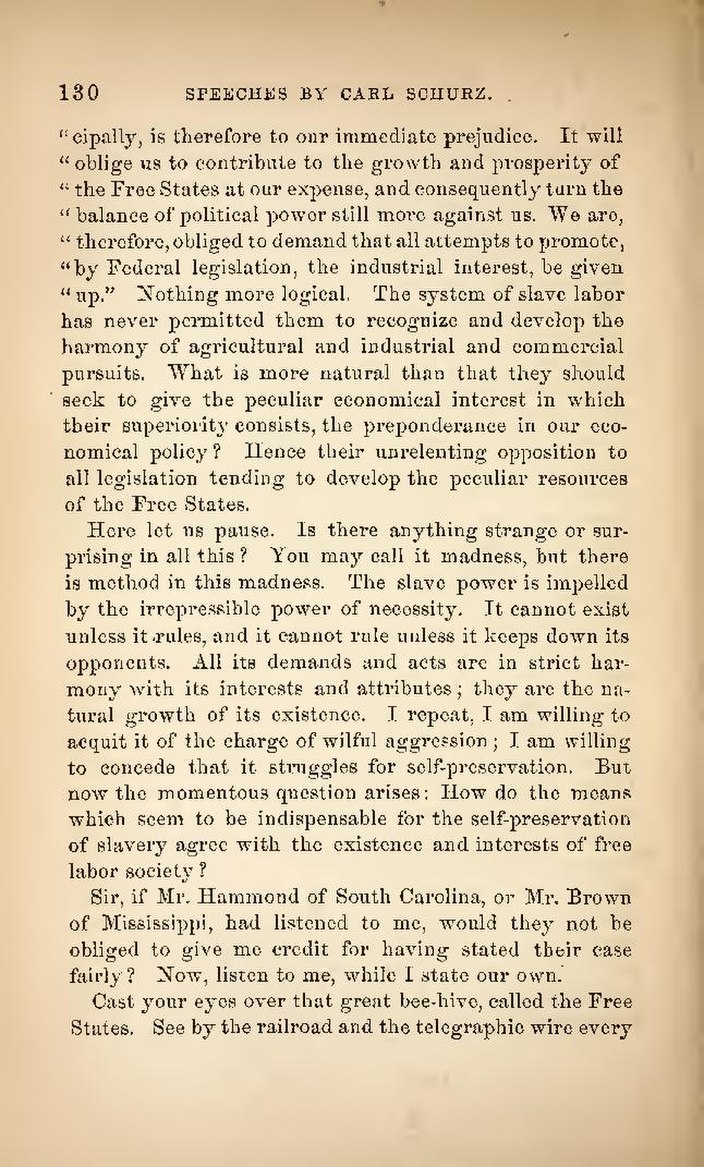cipally, is therefore to our immediate prejudice. It will oblige us to contribute to the growth and prosperity of the Free States at our expense, and consequently turn the balance of political power still more against us. We are, therefore, obliged to demand that all attempts to promote, by Federal legislation, the industrial interest, be given up.” Nothing more logical. The system of slave labor has never permitted them to recognize and develop the harmony of agricultural and industrial and commercial pursuits. What is more natural than that they should seek to give the peculiar economical interest in which their superiority consists, the preponderance in our economical policy? Hence their unrelenting opposition to all legislation tending to develop the peculiar resources of the Free States.
Here let us pause. Is there nothing strange or surprising in all this? You may call it madness, but there is method in this madness. The slave power is impelled by the irrepressible power of necessity. It cannot exist unless it rules, and it cannot rule unless it keeps down its opponents. All its demands and acts are in strict harmony with its interests and attributes; they are the natural growth of its existence. I repeat, I am willing to acquit it of the charge of wilful aggression; I am willing to concede that it struggles for self-preservation. But now the momentous question arises: How do the means which seem indispensable to the self-preservation of slavery agree with the existence and interests of free labor society?
Sir, if Mr. Hammond of South Carolina, or Mr. Brown of Mississippi, had listened to me, would they not be obliged to give me credit for having stated their case fairly? Now, listen to me, while I state our own.
Cast your eyes over that great bee-hive, called the Free States. See by the railroad and the telegraphic wire every
